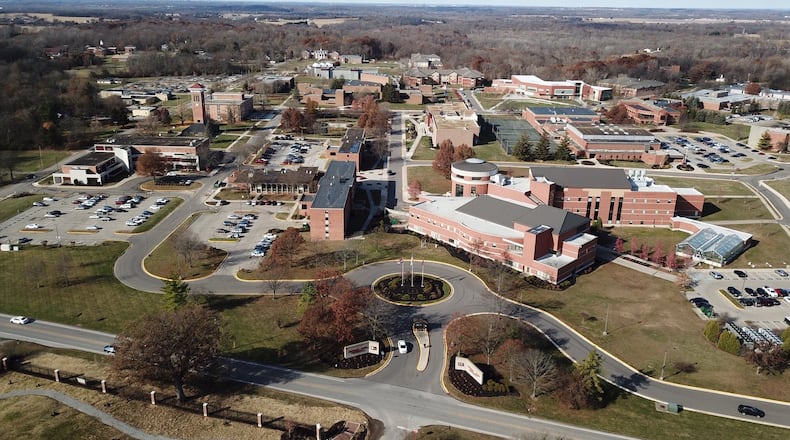Beavercreek Twp. set to build new fire stations after levy passes
Xenia City Manager Brent Merriman said with the completion of this “phase of annexation,” city leaders will meet with university officials to “determine the feasibility and strategic value of additional annexation for service delivery.”
“CSU leaders have previously expressed interest in joining the municipal corporation and we find mutual potential value,” Merriman said in a prepared statement.
County commissioners will review the court’s decision next week and have 45 days from the court’s Nov. 15 ruling to appeal to the state’s highest court, according to Greene County Assistant Administrator Lisa Hale.
The city faced significant opposition in 2017 from Xenia Twp., Wilberforce residents and people affiliated with the university. That opposition has not waned in the ensuing two years.
This is “the first step in an unlawful annexation to create a satellite city” from a three-mile long, 31-inch-wide bike path, Xenia Twp. Administrator Alan Stock said in a prepared statement.
“If allowed to stand, this first step to call a city boundary that is less than three feet wide and almost three miles long proceeding out and away from the city will ultimately create an annexed balloon from which the city of Xenia can then annex more township serviced properties in 360 degrees,” Stock said.
Stock sees the city’s plans for more annexations threatens township property tax revenues, which support emergency fire and road maintenance services. Stock said the township will be exploring “how to best proceed in fighting this verdict,” reiterating that he’d rather work with the city and university to achieve mutual benefits.
“Working together in good faith isn’t annexing land and resources away from each other for the good of one entity and the detriment to the other,” he said.
M. Cookie Newsom, president of the Wilberforce Community Property Owners and Voters Association, called the court’s decision “an ill advised and very unwise decision.” The association previously voted against supporting the annexation.
“The residents of Wilberforce are against it as are all of the employees of Central State that I have spoken with,” Newsom said.
Indicted Pike County sheriff says he’s running again
Mike Gormley, professor and director of CSU’s journalism program who has spoken against the city’s petition as a private citizen, said CSU faculty members have voted to oppose the annexation.
“If the annexation proceeds, Central State employees will pay income tax to Xenia, whether or not they actually live in Xenia and whether or not they are eligible to vote in city elections. It’s taxation without representation,” Gormley said.
Gormley said about half of the university’s roughly 350 employees will see their income tax bills rise.
“Requiring CSU employees to pay Xenia taxes will make it harder to recruit quality employees because it will, in effect, lower their salaries,” he said.
The second appellate court made its decision on three main factors. According to the ruling, the city met the rule that the city is 5% contiguous with the land to be annexed: that the city met the requirement addressing any road maintenance issues as a result of the annexation; and the annexation will not create islands of township land.
The city owns the approximately 41 acres of the bike path, as it was formerly a railway and converted as part of the Rails to Trails program. The remaining 4 to 5 acres involved in the annexation is state-owned land.
Xenia Law Director Donnette Fischer said the bike path is “city-owned land that lies outside the city limits.”
The court sided with Fischer’s interpretation of the road maintenance question, that the city would only be required to maintain those portions of where the bike path crosses roads such as Jasper and Bickett roads.
“There wasn’t really any dispute of the facts. It was more a difference of interpretation as to which is correct,” Fischer said.
About the Author
